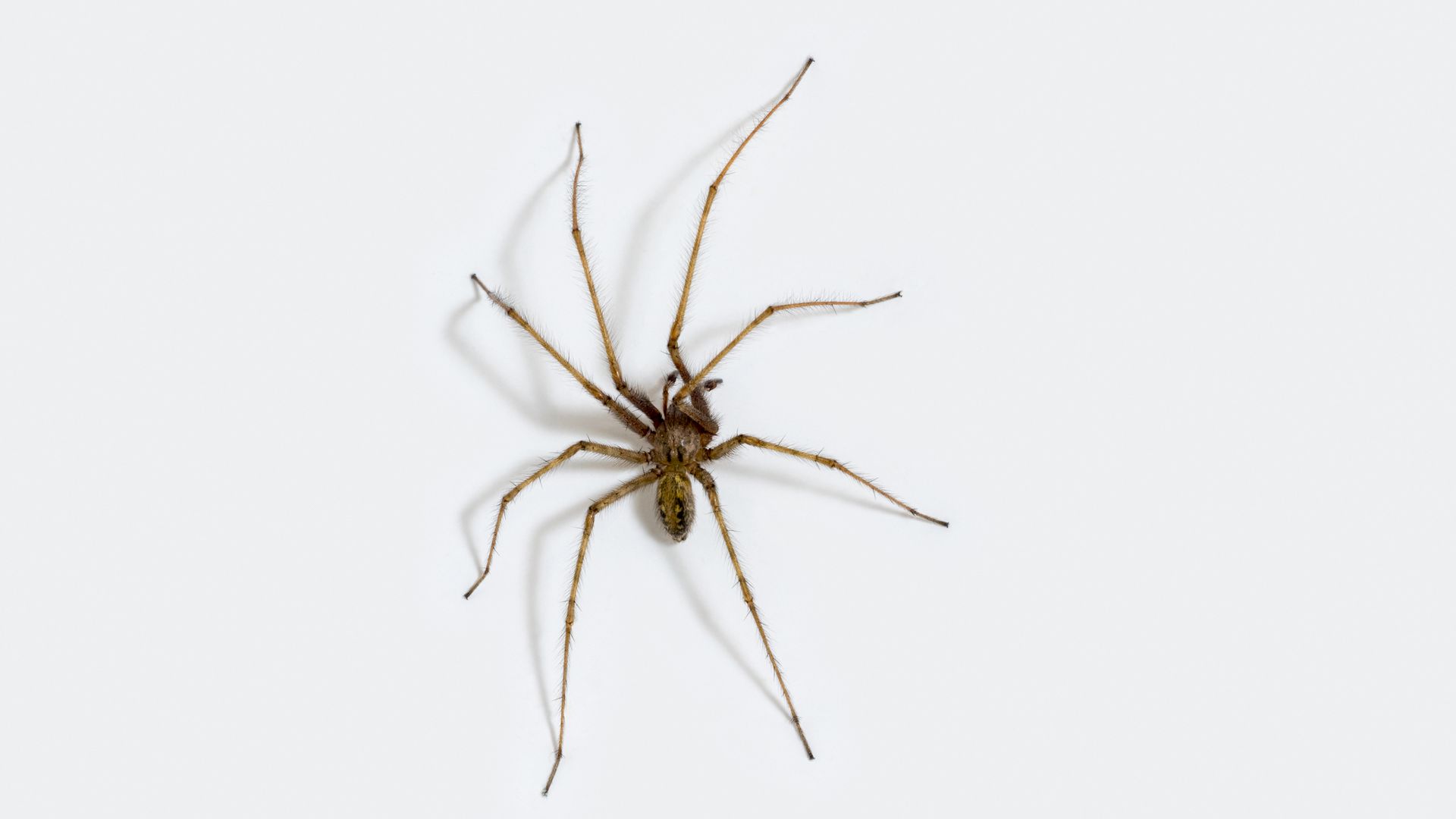Sep 21, 2023 - News
Giant spiders are on the move in Seattle
Add Axios as your preferred source to
see more of our stories on Google.

A giant house spider (Eratigena atrica) climbing a white wall in a bedroom. Photo: Arterra/Philippe Clément/Universal Images Group via Getty Images
